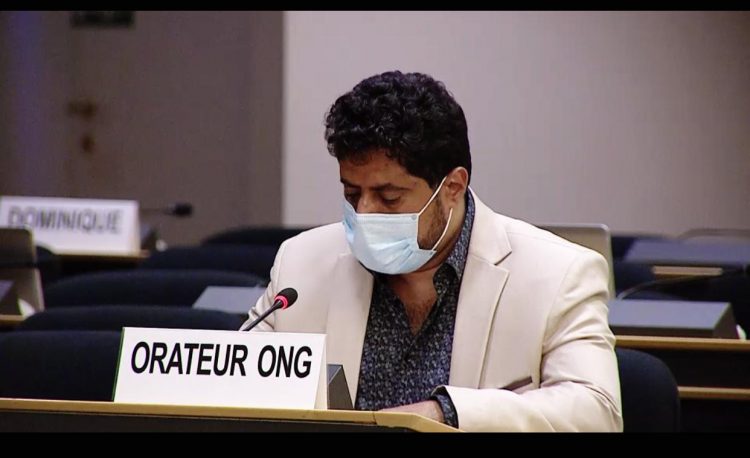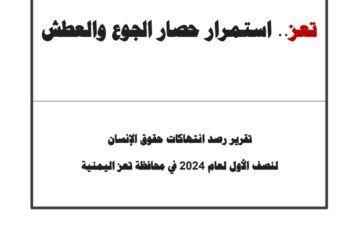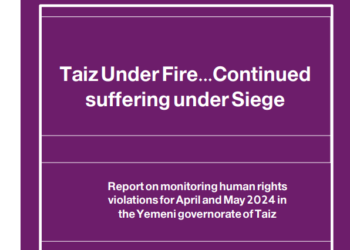HRITC at the Geneva Human Rights Council calls for a mechanism to investigate and document human rights violations in Libya
Geneva/News
HRITC at the Geneva Human Rights Council calls for a mechanism to investigate and document human rights violations in Libya
Human Rights Information & Training Center (hritc),
The regional network of human rights activists and the My Rights Center for Supporting Rights and Freedoms Called in Geneva today, Thursday 18 June, parties to the conflict in Libya to evacuate the fate of dozens of detainees and enforced disappearances and work to release them immediately and adhere to the rules of war and international humanitarian law, this came during the oral statement delivered by Hani Al-Aswadi Non-governmental organization at the resumed 43rd session of the Human Rights Council in Geneva.
The oral intervention recommended the Human Rights Council to work to establish an international mechanism to investigate and document serious crimes and human rights violations in Libya.
In his speech, HRITC and partner organizations urged the Office of the High Commissioner to continue providing technical and technical support and international expertise through the United Nations Support Mission in Libya to raise the capacities and empower national institutions and civil society organizations to monitor human rights violations.
The intervention expressed deep concern about the continued fighting in Libya, especially the area around the capital, Tripoli, in light of the decline in basic services, especially with the risks of the spread of the Covid-19 pandemic, and preparations to address this pandemic are low.
Likewise, the warring parties failed to respond to the calls of the United Nations to conclude a peace agreement, a ceasefire and negotiate a political settlement. The warring parties continue to commit systematic crimes such as arbitrary detention, enforced disappearance, torture and ill-treatment in prisons, extrajudicial killings and some of these crimes may amount to crimes against humanity; And the inability of the Libyan judicial system to operate.
The Information and Rehabilitation Center for Human Rights pointed out the necessity for the United Nations to conduct a rapid and necessary investigation regarding the recent reports mentioned by the emergence of mass graves indicating a large number of serious crimes.
This requires serious interventions to protect human rights in Libya.
Human Rights Information & Training Center
Geneva
19 / 6 / 2020
Speech Text
Human Rights Council – 43th Session – Item 10 GD
Speaker: Mr. Hani ALASWADI
Mr President,
Representative:
Human Rights Information and Training Center- HRITC
And the regional network of human rights activists
Center of My Right for Support the Rights and Freedoms;
Expressing deep concern at the continued fighting in the Libyan capital, Tripoli, and its environs, in light of a frightening decline in the availability of basic services, especially with the risk of a Covid-19 pandemic, and preparations to address this pandemic are low.
With the warring parties failing to respond to the calls of the United Nations to conclude a peace agreement, a ceasefire and negotiating a political settlement, the warring parties continue to commit systematic crimes such as arbitrary detention, enforced disappearance, torture and ill-treatment in prisons, extrajudicial killings and some of these crimes may amount to crimes against humanity;
In addition, recent human rights reports stated that the number of prisoners and detainees in Libya is about nine thousand detainees, including thousands who have been under investigation and trial for many years without providing them with access to justice in light of the inability of the Libyan judiciary to operate.
Mr. President
We call on the parties to the conflict in Libya to evacuate the fate of dozens of detainees and enforced disappearances, to work for their immediate release and to abide by the rules of war and international humanitarian law;
We recommend that your esteemed council work to establish an international mechanism to investigate and document crimes and serious human rights violations in Libya.
We urge the High Commissioner to continue providing technical and technical support and international expertise through the United Nations Support Mission in Libya to raise the capacities and empower national institutions and civil society organizations to monitor human rights violations.
Thank you, Mr. President.








